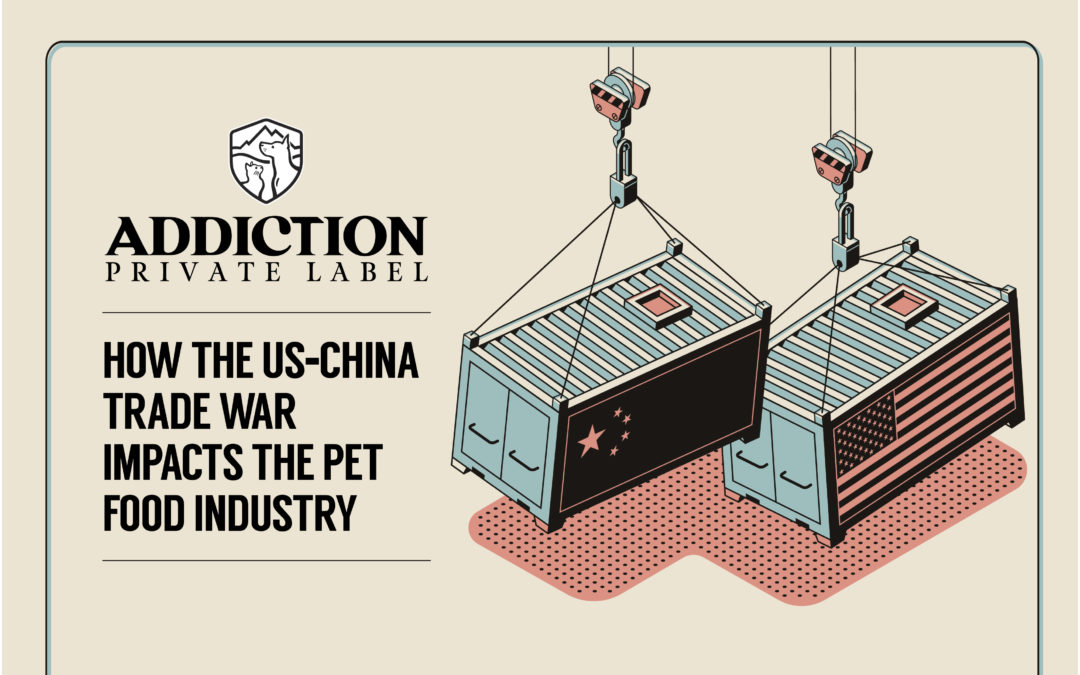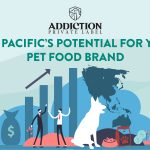Global pet food sales hit US 91B in 2018, with growth coming from treats, the Asia Pacific, and online. As such, it is subject to the global economic climate, especially the ones happening in international trade. Like when the US began implementing tariffs on imported goods from China, starting a trade war. China retaliated by implementing tariffs equivalent to what the US imposed on China amounting to USD 34B.
Impact on pet food
China’s retaliation affected US pet food exports to China, with tariff jumping from 4% to 29%[1]. Such implementation has added to the challenges that face US companies that want to penetrate the China market. Imported pet food from the US has now become expensive.
According to Global Times, many Chinese pet owners “are considering a shift to domestic products or pet food imported from countries like New Zealand, France, and Canada” to the point that they “are considering giving up pet food imported from the US due to their increased price in the domestic market, saying that US products are not ‘irreplaceable’.”
Most likely, imported pet food from New Zealand, France, and Canada will replace the void of imported US pet food. Many Chinese pet owners do not trust domestic pet food. “Pet owners often view imported products as safer.”[2]
Impact on pet food ingredients
Imported US pet food isn’t the only one affected by the tariffs. Pet food ingredients increased its rates, too. “U.S. fishmeal to China, for example, will go from 10% to 25%, putting the new effective tariff rate at a whopping 45%,” said an article posted on AFIA’s website soon after the most recent escalation in the trade war. “Animal protein meals will go from 5% to 10%, putting the new effective tariff rate at 15%.”[3]
And now, “formulated animal feed is on the list of US goods that will face Chinese tariffs.”[4]
What the future holds
Retaliation after retaliation between US and China has made the pet food industry of both countries a hostage. Chinese pet owners are now either scrambling for alternative imported pet food or stockpiling their preferred US pet food brand for their pets. As of this writing, the US-China Trade War still continues to unfold. Its impact on the pet industry for both countries still unraveling. Check out the timeline from China Briefing for recent developments.
With what’s happening in China’s pet food industry, the more you will need a reliable partner for your private label pet food. Check out what Addiction Private Label can do for you and your brand.
References:
[1] https://www.petfoodindustry.com/blogs/7-adventures-in-pet-food/post/8181-pet-food-a-casualty-of-the-us-china-trade-and-tariff-war?utm_source=KnowledgeMarketing&utm_medium=email&utm_content=Petfood%20Industry%20News&utm_campaign=Petfood%20Industry%20News_Thurs_5_30_19&eid=445271084&bid=2456217
[2] https://www.nytimes.com/2018/10/22/business/china-pet-food-trade-war.html
[3] https://www.petfoodindustry.com/blogs/7-adventures-in-pet-food/post/8181-pet-food-a-casualty-of-the-us-china-trade-and-tariff-war?utm_source=KnowledgeMarketing&utm_medium=email&utm_content=Petfood%20Industry%20News&utm_campaign=Petfood%20Industry%20News_Thurs_5_30_19&eid=445271084&bid=2456217
[4] https://www.stevedalepetworld.com/blog/u-s-chinese-trade-war-affecting-pet-food-sales-in-china/







